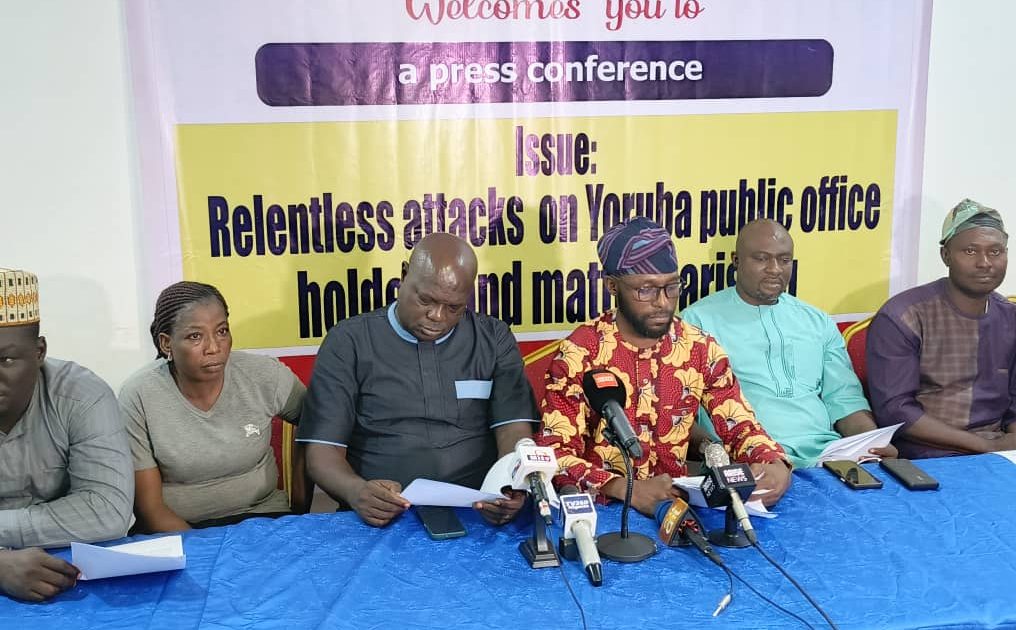Omoyele Sowore, the former presidential candidate of the African Action Congress (AAC), has drawn sharp criticism from the Afenifere Youth Coalition following his public denouncement of Inspector General of Police (IGP) Kayode Egbetokun as “illegal.” Sowore’s statement, published on his X (formerly Twitter) account, prompted the IGP to file cybercrime charges against him. The Afenifere Youth Coalition, a prominent Yoruba youth group, condemned Sowore’s actions, characterizing them as a deliberate attempt to destabilize the administration of President Bola Tinubu. They further accused Sowore of engaging in a pattern of harassment, defamation, and undermining of public officials, suggesting his actions are motivated by a desire to create chaos and gain relevance after his unsuccessful presidential bid.
The Coalition’s statement, released to the public, highlighted what they perceive as Sowore’s consistent pattern of disruptive behavior. They referenced a recent video where Sowore allegedly resisted and obstructed public officers, disobeyed lawful orders, and engaged in cyberstalking. This incident, they argue, underscores Sowore’s disregard for the rule of law and his propensity for inciting unrest. They dismissed Sowore’s activism as “baseless” and driven by “political blackmail,” accusing him of serving the interests of those who fund his activities rather than genuinely advocating for democratic principles. The Coalition reiterated their commitment to peace and progress, vowing not to remain passive while such actions, which they deem detrimental to national stability, continue unchecked.
Furthermore, the Afenifere Youth Coalition characterized Sowore as a “bitter loser” seeking relevance after his resounding defeat in the presidential elections. They argued that his failure to garner significant support during his campaign exposed his lack of leadership capacity and public appeal. Rather than engaging in constructive opposition, they claimed, Sowore resorts to spreading “malicious falsehoods,” cyberbullying, and defamation. They interpret his threats against the Tinubu administration as evidence of his anti-democratic tendencies and a preference for anarchy over governance.
The group also addressed the 16-count cybercrime charges filed against Sowore, viewing them as a consequence of his persistent misuse of online platforms to disseminate false information and incite chaos. Instead of taking responsibility for his actions, the Coalition argued, Sowore attempts to portray himself as a victim and mislead his followers. They contrasted Sowore’s behavior with the IGP’s response, commending Egbetokun for seeking legal redress rather than resorting to intimidation or abuse of power. They urged the judiciary to ensure that justice is served and that this case sets a precedent against online defamation, cyberbullying, and targeted harassment.
The Afenifere Youth Coalition emphasized the importance of responsible online behavior, stating that social media should not be used as a tool for political sabotage. They called for an end to the era of unchecked online defamation and harassment, stressing that activism should be based on facts and sincerity, not personal vendettas and blackmail. They called on Sowore to abandon his disruptive tactics and engage in constructive dialogue, suggesting that true activism requires a commitment to truth and a respect for democratic processes.
In conclusion, the Afenifere Youth Coalition’s statement constitutes a strong condemnation of Omoyele Sowore’s actions and rhetoric. They accuse him of undermining the government, spreading misinformation, and engaging in a pattern of harassment and defamation. They urge the legal system to hold him accountable for his alleged cybercrimes and call for a broader societal rejection of online abuse and manipulation. They contrast Sowore’s approach with what they perceive as the IGP’s measured and legal response, advocating for a more responsible and fact-based form of activism. The Coalition’s statement reflects a broader concern about the potential for social media to be used as a tool for destabilization and highlights the importance of upholding democratic principles and the rule of law in the digital age.














